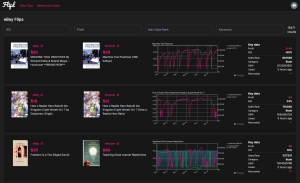The Legal Entity Identifier (LEI) is a unique 20-character code essential for identifying legally distinct entities participating in financial markets globally.
In the UK, an LEI is mandatory for legal entities involved in financial transactions, ranging from the issuance of securities to derivatives trading. This fosters transparency, consistency, and improved risk management.
The LEI is crucial for regulatory reporting and is required by various entities such as limited companies, charities, and government bodies.
By having an LEI, businesses not only comply with regulatory requirements but also gain greater credibility and efficiency in the financial landscape.
The Role of the Legal Entity Identifier
The Legal Entity Identifier (LEI) serves as a foundational pillar in the complex world of financial transactions, acting as the linchpin for regulatory compliance and operational transparency.
Its alphanumeric code is designed to uniquely identify various legal entities involved in financial activities, thereby facilitating easy tracking and monitoring by regulatory bodies.
The robust integrated framework developed through LEI codes enhances the quality and accuracy of financial data systems.
This ensures that regulatory bodies have a standardised method for assessing the financial stability and risk exposure of participating entities.
Benefits of Obtaining an LEI
One of the pronounced benefits of obtaining an LEI is the increased level of trust and credibility it instils among stakeholders involved in financial transactions.
An LEI enables organisations to showcase their commitment to transparency and compliance with regulatory standards, fostering a positive reputation in the market.
Businesses looking to engage with international markets find LEI indispensable. It streamlines cross-border transactions and simplifies interactions with foreign regulatory authorities.
By visiting LEI Service, businesses can access cost-effective options for both new registrations and the renewal of their LEI codes, ensuring uninterrupted compliance and optimum operational efficiency.
Buying Guide for Legal Entity Identifier (LEI) Codes
When navigating the realm of financial transactions, obtaining a Legal Entity Identifier (LEI) is integral for transparency and compliance.
Here’s a detailed guide on essential factors to consider, how to select the appropriate LEI option, and tips to maximise its benefits:
Important Factors to Consider
- Type of Entity: Recognize if your organisation, be it a limited company, charity, or government body, requires an LEI.
- Regulatory Requirements: Stay informed about local and international regulations that mandate the use of an LEI.
- Validity and Renewal: LEI codes need annual renewal. Opt for partners offering streamlined processes and reminders.
- Cost Considerations: Compare fees charged by various service providers.
- Provider Reputation: Choose a reliable and accredited LEI issuer.
How to Choose the Right Option
- Evaluate Your Needs: Determine the scope of your transactions.
- Provider’s Support Services: Ensure comprehensive support, from application to renewal.
- Cross-Border Transactions: Select a provider familiar with global regulatory landscapes.
Tips for Maximizing the Benefits
- Integrate with Financial Systems: Leverage your LEI to optimise data quality and financial reporting.
- Foster Transparency: Build trust with stakeholders, portraying commitment to global regulations.
- Stay Informed: Monitor regulatory developments to understand enhancements in LEI usage.
5 Tips for Navigating Legal Entity Identifier Requirements in the UK
Obtaining a Legal Entity Identifier (LEI) is a key requirement for many businesses operating within the UK, particularly those involved in financial transactions.
An LEI enhances your organisation’s accountability and transparency.
1. Understand Your Obligations
Comprehend the regulatory demands specific to your sector.
- Investigate if your organisation falls under sectors mandated to have an LEI.
- Stay abreast of changes in legal requirements.
- Consult with legal advisors.
2. Plan for Renewals
LEIs are valid for one year and require annual renewal.
- Schedule reminders for renewal dates.
- Consider multi-year renewal options.
- Evaluate renewal costs.
3. Choose a Trustworthy Issuer
The credibility of your LEI is contingent on the reliability of its issuer.
- Research issuers’ accreditation.
- Verify processing efficiency.
- Ensure robust customer support.
4. Leverage Your LEI for Business Opportunities
An LEI can enhance your business’s market presence.
- Showcase compliance in marketing.
- Integrate to streamline financial dealings.
- Highlight in stakeholder communications.
5. Stay Ahead of Regulatory Updates
Remaining informed can prevent compliance issues.
- Track updates from the Global Legal Entity Identifier Foundation (GLEIF).
- Attend industry seminars.
- Network with professionals.
In conclusion, understanding and managing a Legal Entity Identifier is not merely a regulatory obligation but a strategic asset.
By ensuring timely renewals, selecting trustworthy issuers, and staying informed on regulatory shifts, your entity will safeguard its compliance and harness new business opportunities.
A proactive approach to handling LEI-related responsibilities will underpin your organisation’s standing in the financial marketplace.
Frequently Asked Questions about Legal Entity Identifier
Unpacking the complexities surrounding the Legal Entity Identifier can help businesses make informed decisions.
How long does it take to obtain an LEI?
The processing time for an LEI can vary depending on the issuer. It can take anywhere from a few hours to a couple of days once registration is completed.
Can small businesses benefit from having an LEI?
Yes, small businesses can leverage an LEI to gain credibility and improve financial transparency, even mandating it for certain transactions.
What is the cost of registering and maintaining an LEI?
The cost fluctuates based on the provider and duration, with annual fees ranging from £60 to £100.
Is an LEI mandatory for all UK entities?
An LEI is necessary for entities in regulated markets, but not mandatory for all businesses unless specific regulatory criteria are met.
How is an LEI used in financial transactions?
An LEI acts as a unique identifier, facilitating accurate tracking of entities in financial transactions.
Can an LEI improve a company’s market positioning?
Absolutely, possessing an LEI satisfies regulatory requirements and enhances reputation, potentially improving market positioning.








